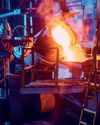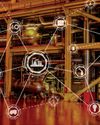
INDIA'S JOURNEY TOWARDS BECOMING A robust economy largely depends on the growth of its industrial sector, with cement being its most produced commodity. In India, the major cement-consuming sectors include housing and real estate (65%), infrastructure (25%), and commercial and industrial development (10%) (AEEE 2021). In 202122, India had an annual cement consumption of 379 million tons, which is expected to increase to 550 million tons by 2025 (Statista 2022). Implementing carbon capture, use, and storage in the cement industry is necessary, not an option if the climate targets are to be met. Although no capture technology has reached commercial-scale demonstration in the cement sector yet, much progress has been made in the last decade. This work intends to provide a general overview of the CO2 capture technologies evaluated in the cement industry at the pilot scale and the current plans for future commercial demonstration (Plaza et al 2020). The leading producer is China (55%), followed in the far distance by India (8%). The market is expected to grow in the forthcoming decades by up to 12–23% by 2050 due to the increasing global population and urbanisation trends, coupled with infrastructure development needs (IEA 2018, 2020).
This story is from the {{IssueName}} edition of {{MagazineName}}.
Start your 7-day Magzter GOLD free trial to access thousands of curated premium stories, and 9,000+ magazines and newspapers.
Already a subscriber ? Sign In
This story is from the {{IssueName}} edition of {{MagazineName}}.
Start your 7-day Magzter GOLD free trial to access thousands of curated premium stories, and 9,000+ magazines and newspapers.
Already a subscriber? Sign In

Multiphysics modelling in manufacturing
Multiphysics modelling is transforming manufacturing processes by improving precision and efficiency, as highlighted in the recent Manufacturing Today webinar, 'Multiphysics Modeling of Manufacturing Processes Using COMSOL\".

Revolutionising the automotive industry: Embracing 14.0 with AI & IOT
Advanced robotics is expected to handle 75% of production tasks by 2025, and AI-powered systems are improving quality control and reducing human intervention.

Adopting green chemistry
Adopting green chemistry is key for Indian manufacturers to drive sustainability and enhance their competitive edge.

A cleaner future for coolants
From extending equipment life to minimising environmental impact, the latest innovations in coolants and lubricants are redefining their role, transforming manufacturing in both operational and sustainable ways.

Forging growth and innovation
Kirloskar Ferrous Industries (KFIL) is driving growth in alloy steel and casting by advancing India's foundry and manufacturing capabilities, aiming to reach $2 billion by 2030. Sujatha Vishnuraj, Editor, Manufacturing Today in conversation with Ravindranath Gumaste, MD, KFIL, to know more about the company's commitment to sustainability and growth.

From Locksto Liftoff
A journey that began with a modest lock manufacturing unit has now evolved into one of India's premier multinational conglomerates.

Top 10 digital transformation strategies for manufacturing
In today's rapidly changing industrial landscape, digital transformation is critical for manufacturing companies aiming to increase efficiency, remain competitive, and enhance customer satisfaction.

Analytics in action
Advances in IoT and automation are transforming the testing, measurement and instrumentation industry, resulting in operational efficiency, data accuracy, and sustainability practices.

ITL-CFC 50: Revolutionising metalworking with high-precision cutting, facing, and chamfering
The ITL-CFC 50 Cutting Facing Chamfering Machine stands out as a highly efficient solution for metalworking industries, offering cutting-edge technology for precision operations.

MRF opens new Tyredrome service centre in Mumbai
The Tyredrome of MRF is manned and run by engineers and technicians trained at MRF.